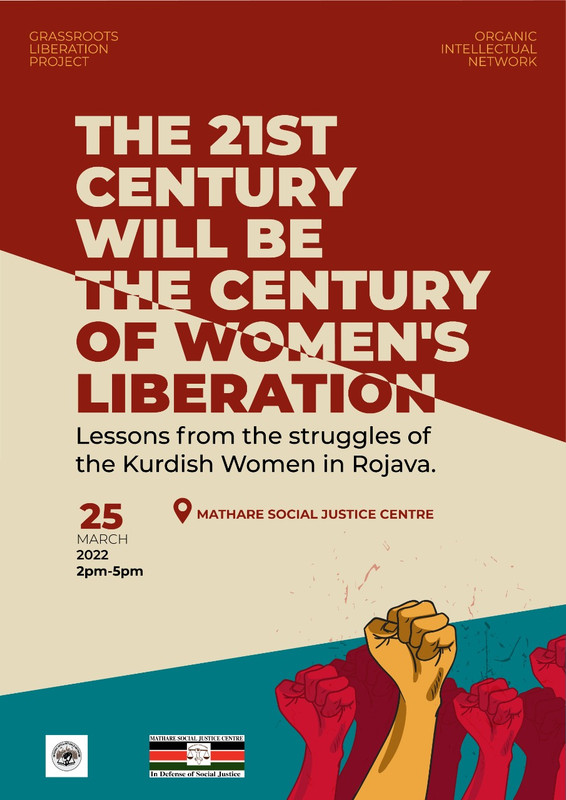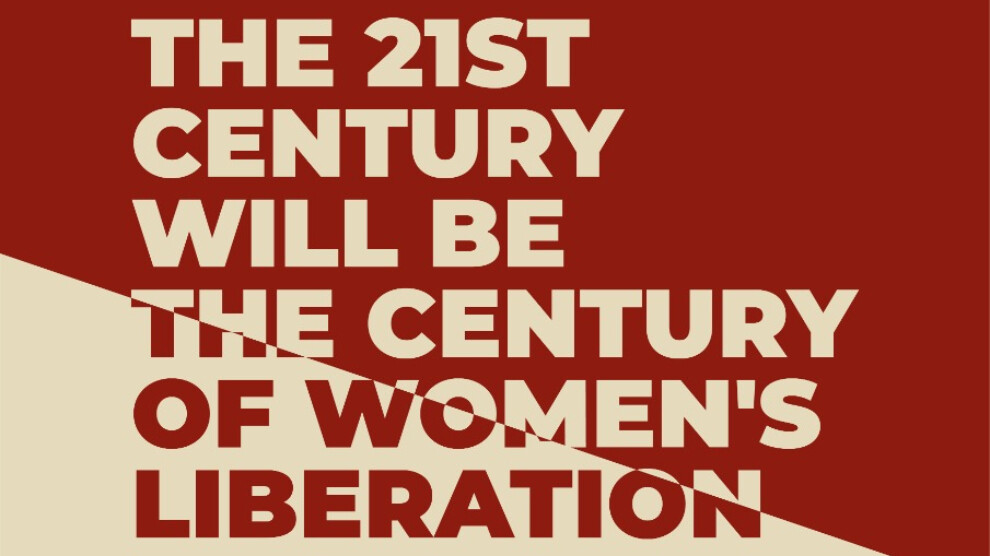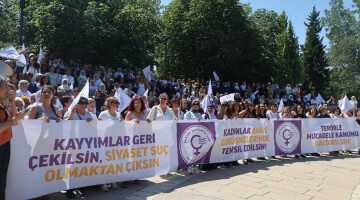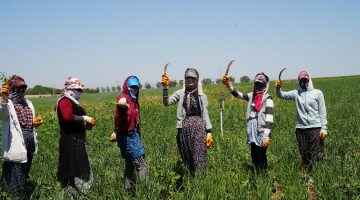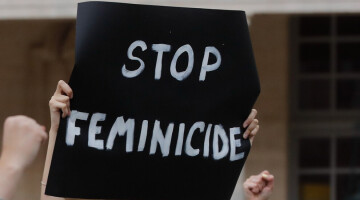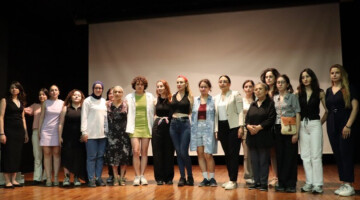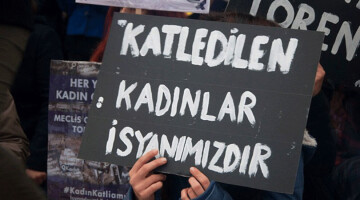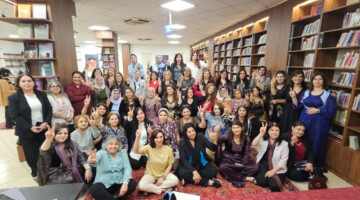As part of a series of seminars in Nairobi, Kenya, the experience of the women's liberation movement of Kurdistan was discussed with local activists. As representative of the Kurdish women's movement, Meral Çiçek participated in the session yesterday via video conference.
The seminar with the title 'The 21st century will be the century of women's liberation. Lessons from the struggles of Kurdish Women' was organised by the Grassroots Liberation Project and the Organic Intellectual Network and hosted by the Women's Social Justice Center in Nairobi, a grassroots women's movement.
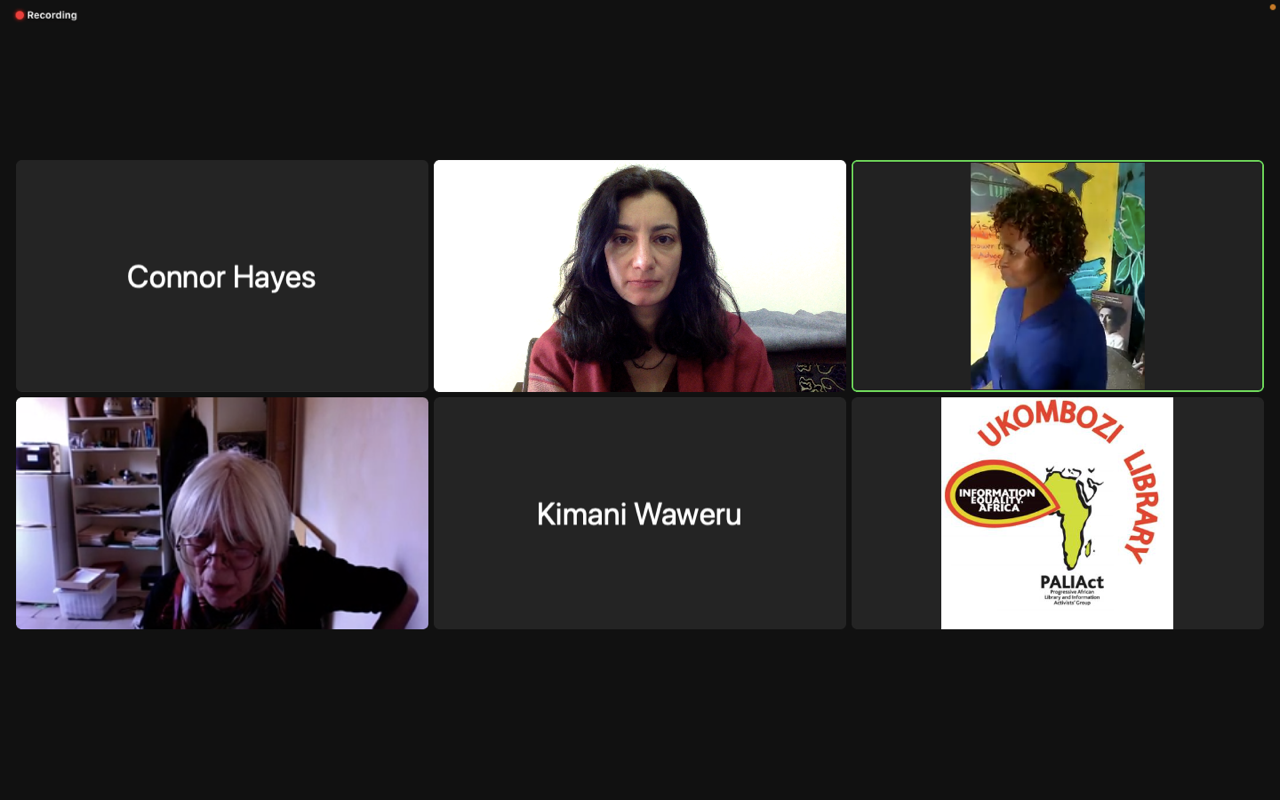
The centre's spokeswomen stressed the importance of bringing together women from different backgrounds to fight for women's liberation. Many women, children and also men attended the seminar and showed great interest. A short paragraph from the Kurdish leader Abdullah Ocalan on women's liberation was read and then Meral Çiçek spoke about the struggle of the Kurdish women's movement. She explained that in order to understand the situation in Kurdistan, it is important to see that during the First World War, Kurdistan was divided between four nation-states, which rejected all rights of the Kurdish people.This, however, raised the Kurdish question, which the Kurdish freedom movement aims to resolve. Abdullah Öcalan analysed the world situation in the 1980s and 1990s and found that the collapse of the real socialist states had a lot to do with the state as a power structure. He concluded that it was not possible to create a free society within a state. However, he and later the Kurdish movement as a whole realised that patriarchy is the main root of oppression and a counter-revolution to society itself. Building on this analysis and the practice of a guerrilla movement in which many women played a pioneering role, the Kurdish women's movement began to organise itself autonomously.
Meral Çiçek stressed that women's liberation is the way to liberate societies. After her speech, Estella Schmitt from England spoke briefly about her meeting with Abdullah Ocalan in 1991, when she came to the Bekaa Valley in Lebanon as part of a delegation. This was followed by speeches from women and men from different movements and organisations in Kenya. Many women stressed the importance of women's organisation. They spoke of many women who, when their families experienced economic hardship, were no longer allowed to go to school, as priority was given to educating their brothers. One woman added the importance of moving together as women towards liberation, as one cannot become free individually. The seminar ended with expressing a common desire to learn more about the women's movement in Kenya and Rojava. Building connections and alliances between women’s organizations and women in general organizations that are based in society, is the most important step towards developing a World Wide Women’s Confederalism, as the Kurdish women’s movement has set as their aim.
